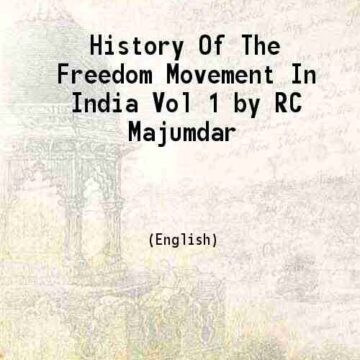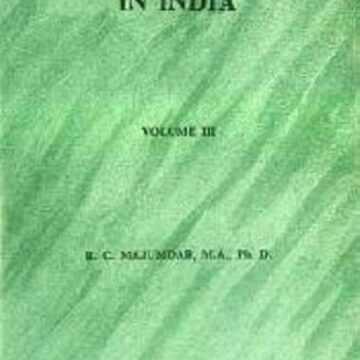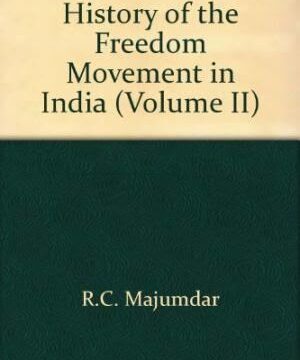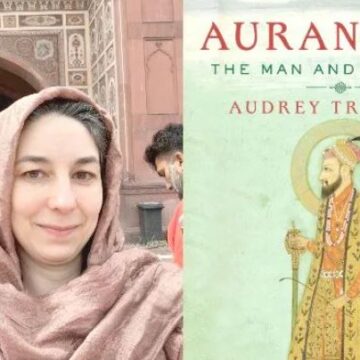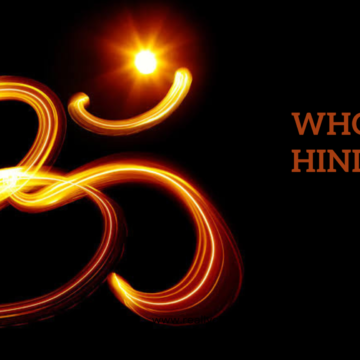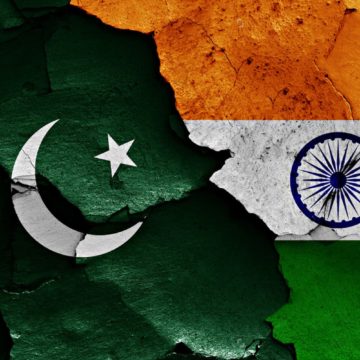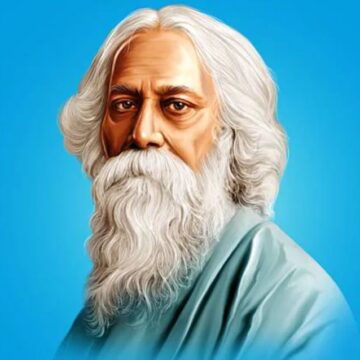Dr Pingali Gopal uses R. C. Mazumdar's book "History of the Freedom Movement in India" as reference to evoke interest in the truth behind the popularised version of the history of India's independence.
The last part of the series deals with the Quit India Movement, Subhash Chandra Bose's contribution to the cause, the partition of India and final moments of dotting the i's and crossing the t's before the transfer of power.
Tag: history distortion
Excerpts From History Of The Freedom Movement In India By R. C. Mazumdar – The Ruthless English: Attitudes, Second World War, Churchill, and Mountbatten – Part 4
Dr Pingali Gopal uses R. C. Mazumdar's book "History of the Freedom Movement in India" as reference to evoke interest in the truth behind the popularised version of the history of India's independence.
Part 4 deals with the naked reality of the Raj in India - the avarice, the ruthlessness, and the cunning of the British in bleeding India dry; and ultimately their reluctance to exit or even to contain the spread of the wildfire that was religious hatred and crimes that ensued.
Excerpts From History Of The Freedom Movement In India By R. C. Mazumdar – The Muslim Politics – Part 3
The point Mazumdar repeatedly makes in his book is that the Muslim leaders were extremely clear on what they wanted. The Hindu leaders remained clouded and romantic, dreaming of a unity not simply existing in the minds and hearts of their Islamic counterparts.
The central idea of all the proposed alternatives was that the treatment of Muslims should not be as a minority community in Hindu India but as a separate nation with a distinct culture.
During this great metamorphosis of Muslim politics in India, neither the Congress nor the Hindu public men gave it the serious attention it deserved. They angrily opposed the idea of vivisection of India in any form and took their stand on the twin ideas of Indian nationality and Indian unity—the ideas that the Muslims rejected in almost one voice.
The Hindu leadership never belonged to the Hindus, and the Muslim leadership was devoted to nothing except Muslims and Islam.
Excerpts From History Of The Freedom Movement in India By R.C. Mazumdar – The Politics Of The Book – Part 2
Dr Pingali Gopal explores the goings on that led to the birth of R.C. Mazumdar's book "History of the Freedom Movement in India" as the author tries to bring to light the truth behind India's independence and tries to redefine what "foreign occupation" means.
The rest of this series is a summary and paraphrasing of the works of RC Mazumdar. The essays are directly from the book, without indication as such in all cases. The first-person component of the essays also belongs to Mazumdar. There are no extra elements or comments added to the text of Mazumdar except for some editing and slight additions to give clarity to the background context and to give a smoother flow to the topic under discussion. The aim is to give an overview of the freedom struggle from a different perspective.p
History Of Freedom Movement: The View Of R.C. Mazumdar – Part 1
Dr Pingali Gopal uses R. C. Mazumdar's book "History of the Freedom Movement in India" as reference to evoke interest in the truth behind the popularised version of the history of India's independence.
On Audrey Truschke’s “Aurangzeb: The Life and Legacy of India’s Most Controversial King”
"Bridging the chasm between the historical Aurangzeb and this reimagined (and largely imaginary) Aurangzeb is a daunting task, but Truschke makes her case with the chirpy enthusiasm of an Aurangzeb fangirl writing a puff piece in People magazine on her idol.
The received historiography on Aurangzeb is riddled with outlandish hoaxes that have gone unchallenged for decades. Truschke’s book is a worthy addition to this genre since it refreshes our memories of these hoaxes while enthusiastically manufacturing new ones."
An incisive and witty review of Audrey Truschke's book on Aurangzeb, and her source material, by Keshav Pingali.
Hindu, Hinduism, Hindudtva – Part 2
In the second part, Dr. Pingali Gopal discusses the evolution of political Hindutva after independence, and sheds light on the failure to define the basic terms as we struggle with the alleged rise of ‘Hindu fundamentalism'.
Hindu, Hinduism, Hindutva – Part 1
Who exactly is a ‘Hindu’ and what are ‘Hinduism’ and ‘Hindutva’? Does it mean the land (geography), ancestral roots (history), or a shared culture?
Dr. Pingali Gopal tackles this proverbial bull by the horns, systematically looking at attempts to define and distinguish ‘Hinduism’ and ‘Hindutva’ by Western thought, the Indian liberal elite, and practising Hindus.
The Neglected Hindu Period of Pakistani History
Since the partition in 1947, Hindus in Pakistan, the persecuted minority, have found their voices unheard and suppressed.
Once inhabited by Hindus and Buddhists, the region that forms Pakistan at present has a demographically insignificant, if not laughable, population of minorities. With the physical disappearance of the Hindus in Pakistan, their history as indigenous inhabitants of the land is gradually becoming a fading memory.
India’s History: Part I, By Rabindranath Tagore
This is an English translation of the essay “Bharatbarsher Itihas” by Rabindranath Tagore, to be found in his anthology of Bengali essays entitled “Bharatavarsha”. The anthology contains several of Rabindranath’s longish essays concerning historical, cultural, and political dimensions of India, all written between 1901 and 1905, a period which can be described as the zenith of Bengal’s (and in turn, India’s) rebirth in the Modern Era. Each of these essays, though deeply embedded within the historical context of the author’s time and space, is largely relevant for all of India today.

